As much as we long to get away to our amazing destination, few of us relish the idea of losing the precious first hours of our much anticipated break to the effects of flying and jet lag.
The good news is that we have some simple tips to help you land in your destination feeling ready to make the most of your trip...
What is jet lag?
Jet lag is the feeling of tiredness, which can (for some) feel quite intense, that occurs when we fly across time zones en-route to our holiday destination. It happens because our internal body clocks follow a natural 24-hour rhythm, which is controlled by a master clock in our brains. This master clock is influenced by daylight and night time. When we cross over zones and the timings of our daytime and nighttime alter, it's not surprising that we feel a little disorientated. This tends to last until our body clocks catch up and re-establish their so-called ‘circadian rhythm’, which allows us to get used to the new times for sleeping, waking and eating.
Just as scientists have pinpointed the causes of ‘jet lag’, they have also been able to develop some sensible and easy-to-follow advice to help our bodies adjust to the effects of long haul air travel...
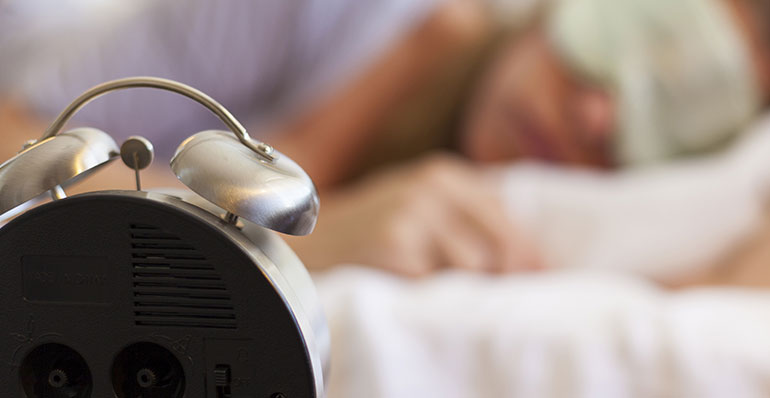
Before you travel
Travelling East
• If your holiday destination involves you travelling east you essentially ‘lose time’. To help your body to deal more effectively with this time change, try in the seven to ten days prior to departure, to go to bed earlier than usual. If you can manage to gradually change your bedtime so that eventually you are sleeping one or even two hours earlier than usual, it can help you to adjust more smoothly and quickly to the new time at your destination.
• To help you to sleep earlier than usual, try to: 1. Avoid caffeine-containing drinks for 6 – 8 hours before bedtime. This can help our nervous systems slow down and prepare for rest. 2. Have a chamomile tea before bedtime or a warm glass of milk. Both seem to help our bodies to calm down and prepare better for sleep. 3. Have some carbohydrates at dinnertime like potatoes, pasta or rice; these again seem to help to slow and calm us down after eating, preparing us to nod off more easily. 4. Avoid alcohol because although it may help you to fall asleep more quickly than usual, its effects tend to wake us up and disrupt the vital phases of deep sleep later in the night.
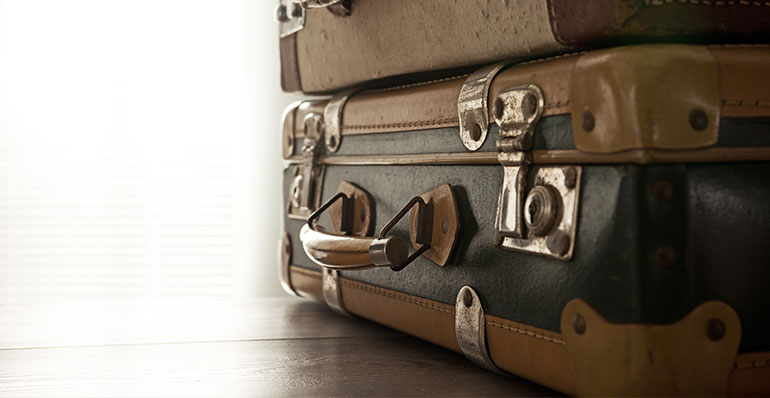
Travelling West
• If your holiday involves travelling west you effectively ‘gain time’ and have a longer day. Our bodies are better able to deal with extending rather than shortening our days so it is worth trying to go to bed one or two hours later than usual in the weeks running up to a holiday travelling in this direction.
• To help you to sleep later than usual: Having a caffeine-containing drink before bedtime maybe just what you need to keep you awake slightly later than usual!
Also remember…
For some, flying is an exciting part of the holiday, for others the process is a little more stressful. Keeping stress to a minimum can ultimately help to reduce the impact of jet lag.
Try ticking each of the tips off below as you prepare for your holiday. Knowing that you are in control can create a much more positive vibe to the start of your trip.
• Pack your suitcases in advance of travelling. This gives you time to buy any extras you may need before you set off. It sounds obvious, but none of us need the added anxiety caused by rushing around at the airport stocking up on suntan lotion and last minute moisturisers.
• Travel with as little hand luggage as possible; it makes your time at the airport easier to deal with, allowing you an opportunity to browse shops should you wish or to sit comfortably while waiting for your flight without too many bags in tow.
• Check in online. Just knowing that you have this part of your journey organised can help you relax a little. Book your preferred seat on the plane if you wish.
• Organise your transport to the airport and your route and parking in advance. Again, knowing how long it will take and leaving yourself enough time for each stage of the journey will help you to stay calm in the run up to leaving home. If you are using a taxi service, choose a company you know you can rely on.
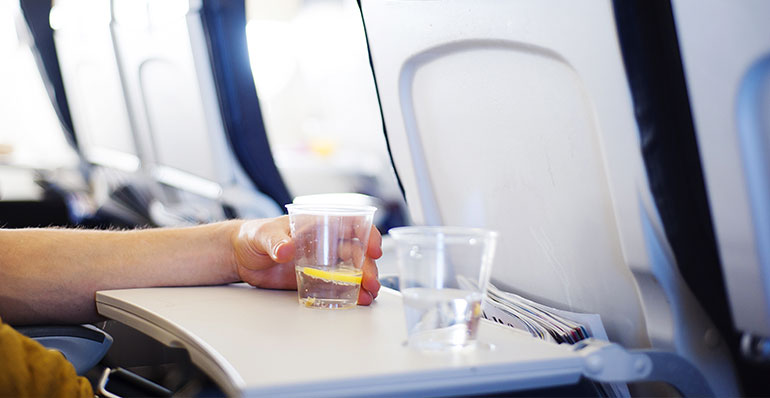
• Always leave yourself a little extra time for last minute things that may cause unplanned hitches in your travel plans.
• Once your suitcases have been sent on their way, find out your boarding gate, which direction it is in and what time you are expected to arrive at it. If you don’t have an allocated gate on arrival at the airport, keep an eye on the departure boards, making a mental note of when in theory your gate number should appear. Try to find somewhere to relax with the departures board in sight, or take a stroll around the shops if you prefer to keep moving.
• During all of this regularly drink water to keep hydrated. Research reveals that even slight dehydration heightens stress and anxiety, triggers headaches and leads to tempers becoming lost and frayed; which is the last thing any of us need at the beginning of our holiday.
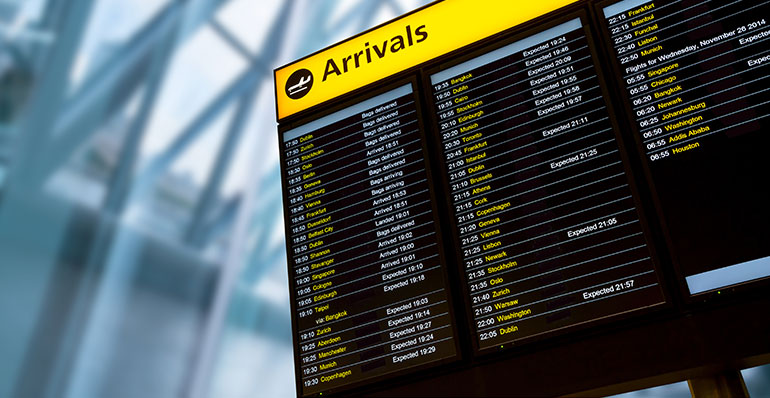
While flying
Some people love everything about the flying experience; the fact that they can literally switch off and let others takeover the drinks and food service, watch a film, have a snooze or read a favourite book or magazine. For others, the experience may be less relaxing.
But wherever you lie on the spectrum of enjoyment of flying, there is one thing we all have in common. How we behave on-board can influence how we’ll feel once we disembark and can influence the impact of jet lag once we reach our resort.
Try our simple on-flight tips:
• The number one rule is to avoid or very carefully limit alcohol while flying. Alcohol causes dehydration and can make us feel tired and stressed.
• Next, avoid caffeine containing drinks like cola, hot chocolate, coffee and tea if you are trying to catch up on some sleep once aboard.
• Keeping well hydrated is a well-known tip and this means sipping water regularly as you fly. Plain water is preferable to sparkling to help reduce the risk of bloating.
• Drinking water regularly means you will need to jump up and down to go to the toilets on board, but this in itself is a good thing as it gives you a chance to move around and keep your circulation going.
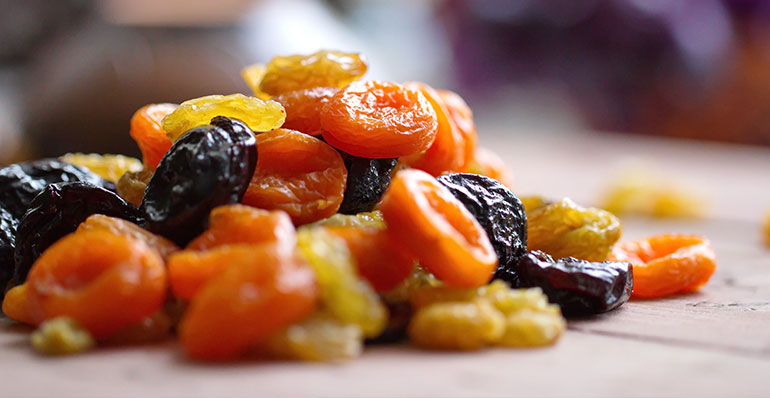
Once you arrive
Once you have arrived at your dream destination then try hard to continue what you began in-flight and eat and sleep at the appropriate time for you new time zone… not the ones you left behind at home.
As much as you may feel like napping once you arrive, try your hardest not to, even if it is close to bedtime. Staying active for example taking a gentle walk, having a swim, will help your body adjust more quickly and help you to stay awake.
Spend time outdoors rather than hiding away in your hotel room, even though it will be tempting to do so! Natural light will help your circadian rhythms to adapt more rapidly.
If you feel hungry at odd times, try to snack on fruit or light options like a handful of nuts. If you feel that your body is urging you towards a sugar-fix, remember that mango, pineapple, papaya and bananas are full of nature’s own, more slowly absorbed and natural sugars that will do the trick and deliver vitamins, minerals and antioxidants in abundance to help with your post-travel experience.
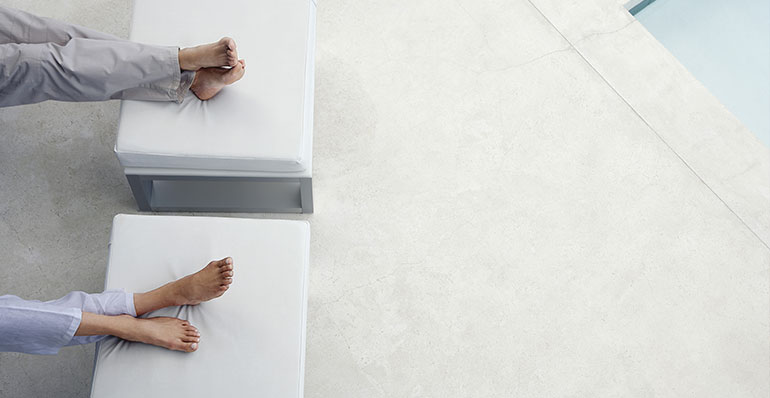

_w=24_h=25.png?v=9bf2f4534d39fa63e6d9141766d6cd930099b30f)
_w=24_h=25.png?v=9bf2f4534d39fa63e6d9141766d6cd930099b30f)
_w=24_h=25.png?v=9bf2f4534d39fa63e6d9141766d6cd930099b30f)
